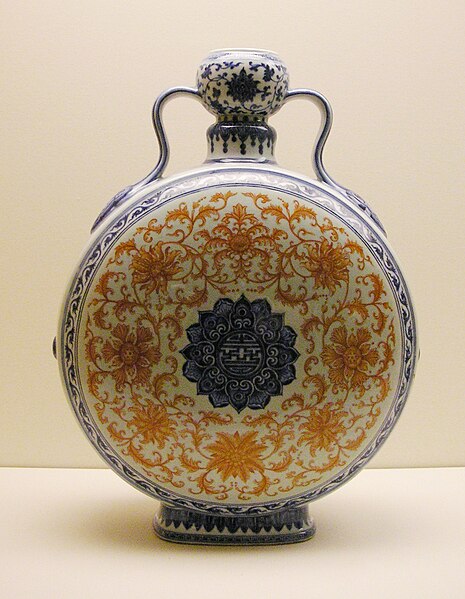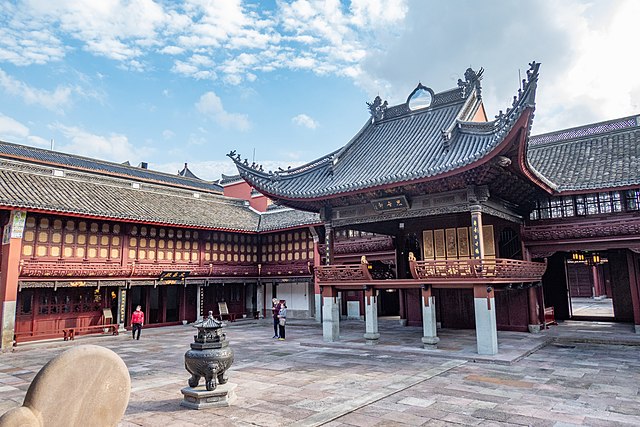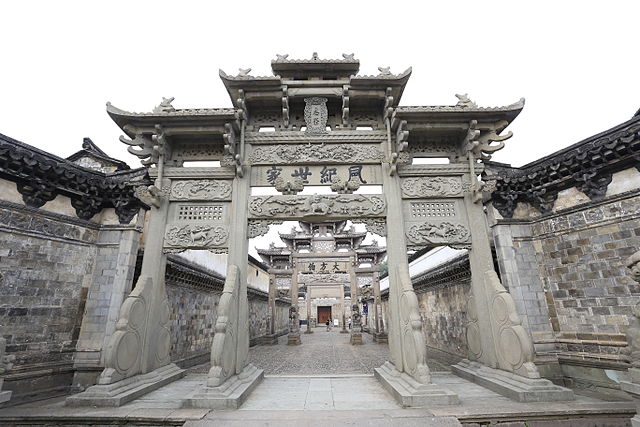In traditional Chinese culture and the East Asian cultural sphere, qi or ch'i in Wade–Giles romanization or chi, is believed to be a vital force forming part of any living entity. Literally meaning "vapor", "air", or "breath", the word qi is a polysemous word often translated as "vital energy", "vital force", "material energy", or simply as "energy". Qi is a mythical concept in traditional Chinese medicine and in Chinese martial arts. The attempt to cultivate and balance qi is called qigong.
Qi
Chinese culture is one of the world's oldest cultures, originating thousands of years ago. The culture prevails across a large geographical region in East Asia with Sinosphere in whole and is extremely diverse, with customs and traditions varying greatly between counties, provinces, cities, towns. The terms 'China' and the geographical landmass of 'China' have shifted across the centuries, before the name 'China' became commonplace in modernity.
Porcelain is so often associated with China that it is often referred to as "china" in everyday English usage.
Chinese shrine in Ningbo city
Residence of the Lu Family in Dongyang, built in the Ming period.
Fenghuang County, an ancient town that harbors many architectural remains of Ming and Qing styles.





